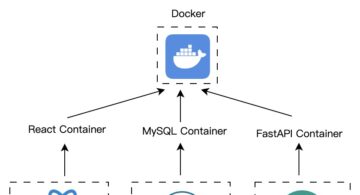日常・その他
The Politics of Automation
LyEdward

Introduction
With artificial intelligence and automation technology on the rise, more and more people are starting to speculate (or perhaps even realize) how this technology will impact major societies all around the world. While Japan may be famous for its research into humanoid robotics, the country also manufactures a significant number of robots used in automation and the manufacturing sector itself. Japan far from being the only country too, as such automation is already happening all around the world. What some may not realize is that the effects of automation are already being felt not just years into the future, but today. In this post, I will discuss some of the political effects of automation technology. More specifically, we need to think about not only what kinds of jobs and employment opportunities will be available in the future, but also how we think about work itself and whether or not it is an essential part of our lives.
I bring up this topic as an American citizen because Andrew Yang, a recent candidate for President of the United States, mentioned the rise of automation as a core issue for his political campaign. As more and more businesses turn to automation to maximize efficiency and increase productivity and profits, the increasing number of employees displaced by such automation gives rise to “technological unemployment”, which I didn’t know until recently was an actual term (or at least a term that was popular enough to warrant its own Wikipedia entry). Call center workers can be replaced by decision tree software for more efficient and expedient customer support. Retail and grocery stores are increasing the usage of self-checkout machines to reduce checkout lines and cashier work. The development of self-driving vehicles will rise to a point where taxi drivers and truck drivers will be replaced by such vehicles. These are only a few examples of technological unemployment in action today, and they are affecting some of the most common jobs in the world.
If you have followed the unemployment rate in the United States over the past few decades, you may not realize this technological unemployment is happening at first, since the unemployment rate has been steadily decreasing since 2010. However, the labor force participation rate tells the actual story, where it has steadily decreased since the turn of the millennium. This means that more and more people are leaving the workforce altogether instead of finding work in another sector altogether (or they are unable to transition into another sector at all). This could turn into increased financial stress, hunger, and homelessness as they become unable to sustain themselves without any income to stand on.
Solutions
So what can we do to stop such mass unemployment? A traditional solution would be to implement job retraining programs that provide workers with the skills necessary for a target job. However, these programs are well known to be ineffective in regards to transitioning people to new careers, if the decrease in labor force participation rate is not evidence enough. Another proposed solution would be for the government to provide “guaranteed jobs” to fill the demand in jobs and employment. However, the jobs provided may not be the kind of work that the unemployed want to do, leaving a “skills gap” that would still not be filled.
Andrew Yang’s solution is a universal basic income (what he calls a “freedom dividend”) that provides all adult citizens with a monthly stipend that they can freely spend and is not dependent on employment income or status. He even conducted a one-year trial to serve as a “proof of concept” of the idea, giving his own money to several American families in order to improve their lives for the better (a similar experiment also occurred earlier this year in Japan from Japanese entrepreneur Yusaku Maezawa). One such family from Andrew Yang’s experiment spent their money on groceries and college tuition, illustrating the positive effects that such an income can bring (even if the effect just minor or anecdotal for now).
The Value of Work
The decrease in the number of available jobs raises many questions about the current job market and its future prospects, especially as the number of available jobs as well as the labor force participation rate continue to decrease. What will happen when there are not enough jobs to accommodate the entire working population? What kinds of work will even be available in the future? For those who are unemployed or working in a job that is at risk of being automated, the loss of a stable income can feel stressful or even life-threatening. I believe the addition of a basic income would provide not only financial security, but also the mental stability that comes with reduced economic anxiety. The unemployed would no longer be forced to continue the career they had just lost from automation, but rather invest their basic income in more productive ways. The money would go to not just groceries for basic survival, but also learning new skills they genuinely want to learn or investing in a new business.
All this, and I have yet to mention those who “work” in non-traditional jobs and do not receive any traditional income at all. One popular example that Andrew Yang mentions often is the stay-at-home parent. Without any income to support themselves, how are they expected to support their children as well? While some companies may provide paid parental leave, this additional income is tied to employment and not universal, and so will not help the increasing number of parents (or even prospective parents) who are unable to raise their children financially.
And to those who are still skeptical of a universal basic income, I propose these questions: is the concept of a job valued so much in our society that people do not deserve to live (or at the very least, be stigmatized as “feeders” or “parasites” of society) if they do not have one or are unable to obtain one? Is a job really an intrinsic part of a person’s life, or is it just an artificial construct that we are bound to by society? I am reminded of Maslow’s hierarchy of needs when I am faced with such questions. Every human being needs to satisfy their most basic of needs (food, shelter, etc.) before they can even begin to reach their full potential, whether as an employee or a small business owner, so why take away their ability to survive and decrease their chances of employment? Moreover, multiple studies have shown that a basic income generally only increases a person’s motivation to work, not decrease. I believe a universal basic income is long overdue to be implemented in the United States as the best method for enforcing the human right to “Life, Liberty and the pursuit of Happiness”, as famously written in the United States Declaration of Independence, although every country can benefit from providing a basic income to its citizens as well.
Conclusion
The increase in income inequality has slowly become a bigger concern in the United States as of late, and technological unemployment is only one of many reasons why this is the case. With more and more Americans struggling to make the “American Dream” a reality in their lives, including myself, it only makes sense to me that a universal basic income would greatly help to bridge the wealth gap between the poorest and richest Americans, and enable even the poorest Americans to take back control of their lives and realize their potential once more. With Andrew Yang currently out of contention for the presidential seat, however, a future with universal basic income for all Americans looks uncertain, but I can only imagine that it will become an eventuality as artificial intelligence and automation technology continues to improve and more jobs are lost to the incoming technological wave.
For further reading, I refer you to Andrew Yang’s book, The War on Normal People. It goes into much more detail than I can explain in this blog post and it is the inspiration from which I learned about the issue of automation and wanted to share my preliminary thoughts in this post. I personally recommend reading the book if the topic has piqued your interest in any way.
 2025/01/10
2025/01/10 2024/03/01
2024/03/01 2023/12/01
2023/12/01 2023/06/23
2023/06/23 2023/02/24
2023/02/24 2022/12/16
2022/12/16 2022/06/24
2022/06/24 2022/06/17
2022/06/17